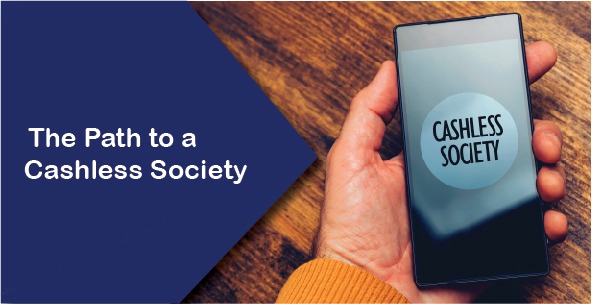
If you were to peer into the payments industry’s crystal ball, would you see visions of a cashless society? Will be there a time when cash is obsolete? At this stage in the evolution of payments, it’s less a question of “if” and more a question of “when.” Before we get too ahead of ourselves, we can turn to printed media for some guidance. In the spirit of Mark Twain, let’s just say that “The reports of the death of newspapers are greatly exaggerated.” The same holds true for cash. While the journey to a cashless society heads to its inevitable destination, it is paved with obstacles like data breaches, transaction disputes, and
chargebacks
.
Zero-Cash Evolution
The zero-cash revolution is currently fueled by credit and debit cards, electronic payment apps, mobile payment solutions, and mobile wallets. Nations like Sweden and India are ahead of the curve, with a push to eliminate cash coming from both consumers and government bodies. Many Swedish shops and some banks no longer accept or handle cash. In fact, only 15 percent of Sweden’s retail sales are cash, and consumers are all for it with the notable exception of the elderly and the poor. For the elderly, old habits are hard to break, and the poor don’t have access to the devices and apps that enable cashless transactions.
Advantages and Disadvantages of a Cashless Society
The benefits of a cashless society are self-evident. Consumers like the convenience of
card-not-present transactions
and the expediency and instant gratification of omnichannel shopping options. Cashless transactions also offer greater efficiencies with tap-and-go and prepaid digital methods, reducing long lines of people paying with cash and waiting for change. Cash-based drug trade transactions that leave a money trail can be curtailed; money laundering would be much more difficult to pull off and the elimination of printing bills and producing coins would save money.
The disadvantages of a cash-free economy are equally self-evident and illustrate why we need to proceed with caution:
- Privacy issues: Electronic payments inherently mean less consumer privacy. Consumers trust companies to protect their data, but it is possible for their payment information to turn up in ways they didn’t expect.
- Threat of hackers: Hackers spend countless hours searching for ways to steal consumer data. Should a hacker successfully drain a consumer’s account, the consumer is currently left with no alternative ways to pay for goods or services while their issue is being resolved. However, it is safe to conclude that a cashless society will offer alternatives should an account be comprehensively breached.
- Technology problems are inevitable: Outages, glitches, and simple mistakes can prevent consumers from completing their transactions. These same problems can also prohibit merchants from accepting payments.
- Overspending and buyer’s remorse: Cash is a tangible way to feel the “pain” for every dollar spent. Electronic payments make it easy to tap, swipe, or click to complete a transaction without that same level of accountability. This opens the door for friendly-fraud driven by buyer’s remorse or an overall feeling that they are not actually hurting a merchant or company with which they don’t have an ongoing relationship.
- Slow adoption by older consumers: Raised in a cash society, older consumers will hold onto a process they’ve used their entire lives. Couple that with over 14 million consumers who are unbanked and don’t have the means or are ineligible to use banks, and a totally cashless society is years away.
Eliminating cash certainly has its advantages, and for many people the future is now. Adoption by merchants and issuers is part of the natural evolution of the payments industry, but along with its implementation is the need to protect both parties from true and friendly fraud.
Current e-commerce practices rely on data to ensure transactions are processed correctly and disputes can be resolved before they devolve into chargebacks. This demands merchants and issuers to share data and make it readily available when a consumer issue arises. The need for
collaboration
will only escalate as we continue to make progress towards a totally cashless society.
Contact us
to learn how Verifi solutions can enable the level of collaboration to offer consumers the benefits of cashless payments while protecting themselves against fraud.